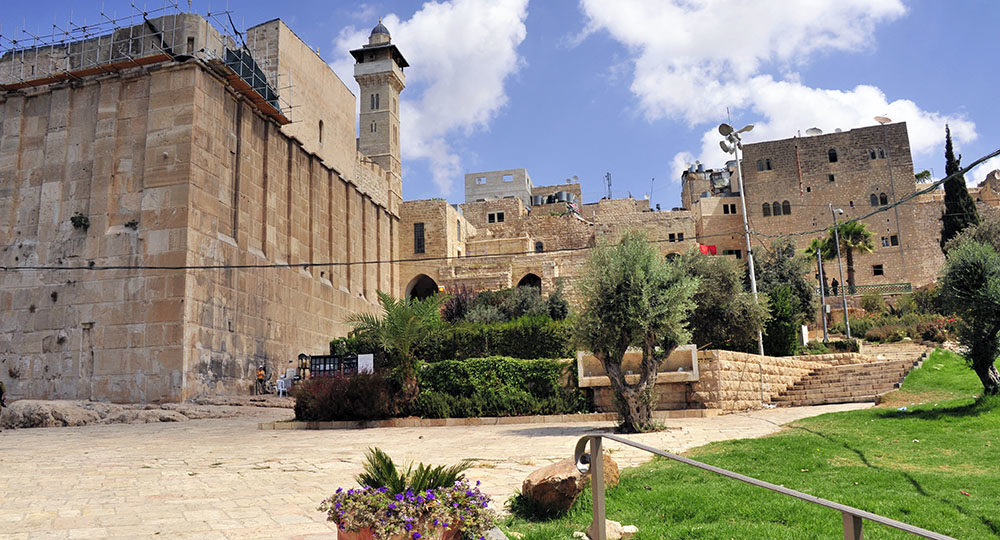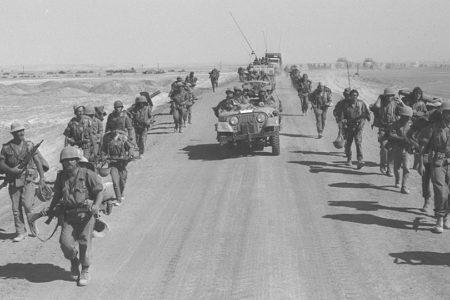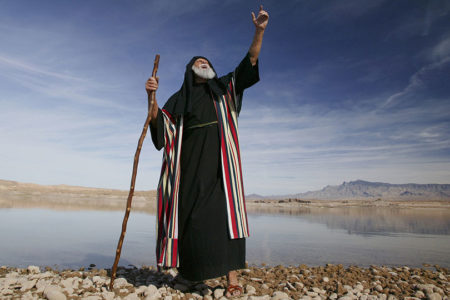Land Rights of the Patriarchs
Genesis—Judges
For centuries people have argued over who has the legitimate claim to the land known today as Israel. The Arab-Israeli conflict has raged for decades, with both sides claiming exclusive rights to the territory.
The Israelis trace their ownership to a biblical promise given by God some 4,000 years ago. The Arabs claim their descendants owned the land before the Israelites conquered it. Legitimate claim can only be determined by examining the historical record. But the record must be one that transcends historians on both sides of the issue, stands the test of time, and predates both Jewish and Arab occupation of the land.
The only such record is the infallible, inerrant, inspired Word of God. The scriptural record predates Abraham and his sons Ishmael and Isaac, out of which this controversy arose.
Neither Israel nor the Arabs originally owned the land. God Himself owns the Promised Land, as well as the whole earth (Ex. 9:29; 19:5; Lev. 25:23; Ps. 24:1). It is God who has the right to give land to the people He chooses, and He does so at His pleasure.
When God arranged and determined the boundaries of nations, He marked out a specific portion to be set aside for His people Israel. The size of the land grant was determined “according to the number of the children of Israel” (Dt. 32:8). God’s decision to grant the land on which the State of Israel resides today was made long before His promise to Abraham.
Two Old Testament covenants spell out Israel’s legal right to the land: the Abrahamic and Land Covenants.
In the Abrahamic Covenant, God divinely bestowed what was formally called the land of Canaan to Abraham and his seed Isaac (Gen. 17:19–21) and to Isaac’s son Jacob (26:3; 28:13) as an eternal possession in perpetuity (12:7; 13:15; 17:8). Canaan is legitimately and legally owned by Israel today.
The land promise in the Abrahamic Covenant was later confirmed through Moses in what is commonly called the Land Covenant, also made with the nation of Israel (Dt. 28—30). There, Moses stipulated the conditions of obedience Israel needed to meet to remain in the land and be blessed. Disobedience to God’s commandments would lead to the nation’s dispersion. Although Israel was dispersed from the land, the covenant also promised restoration to the same land once Israel repented of sin.
The Arabs are quick to point out that Ishmael was Abraham’s elder son and would have first rights to the Promised Land. But that argument is fallacious because God specifically declared that His covenant promises would go through Isaac and Isaac’s seed after him (Gen. 17:18–21). Never did the promise go to Ishmael.
When it came time for the Israelites to take possession of the land, God gave Joshua divine authority to destroy and conquer the inhabitants on the east and west sides of the Jordan River—a total of 31 kings and their cities (Josh. 12:24; cf. 6:1—12:24). God then divided the land among the 12 tribes of Israel (chaps. 13—22), giving them authority to drive out the Canaanites over time.
Israel became a theocracy for the next 332 years and was ruled by judges after Joshua’s death (Jud. 3:9—16:31; 1 Sam. 7:6, 15).








Thank you for this article as I am searching for the answer to why Palestinians think the land is theirs.